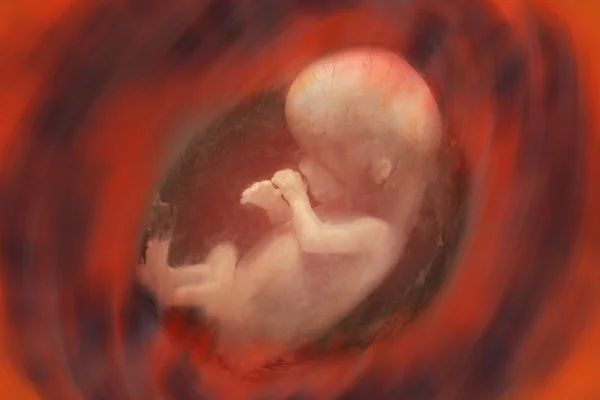In the recent Catholic Peace Weekly Peace column, a Korean researcher living in the States gives us his thoughts on the fetus and artificial intelligence.
The Pro-Choice camp, which advocates allowing abortion, emphasizes a woman’s right to choose an abortion and argues that a woman’s individual “right to decide on her own body” takes precedence over the “right of the fetus to survive.” Although they view social, economic, or other reasons as grounds that can justify abortion, they do not believe that the same reasons are justifiable reasons for depriving a born, breathing child of life. Everyone agrees that humans have special values and rights and that these basic rights must be protected. Ultimately, the key difference between the pro-choice camp and those with opposing views is whether or not the fetus is considered a full human being.
The basis of the pro-choice camp's argument is the idea that a fetus cannot be considered a human being because it does not possess the abilities that a full human being should have. In fact, from the ‘perspective of ability’, a fetus before a certain period has no brain activity, no ability to express itself, and no ability to survive on its own outside the womb.
In contrast, looking at the rapid development of artificial intelligence, there are more and more examples of artificial intelligence that achieves performance similar to or better than that of humans. Artificial intelligence is becoming increasingly advanced, with the ability to understand and create language, test knowledge in specialized fields, and even mimic emotions. Artificial intelligence is now able to accomplish areas of art that were thought to be something only humans could do. The pace of development is so fast that you can almost feel the difference between artificial intelligence from just a few months ago.
Looking at a fetus that can't do anything and an artificial intelligence that can do things better than humans; we must ask what are human values based on? So, does artificial intelligence have greater ‘human value’?
Suppose we claim that brain activity, cognitive abilities, and the ability to survive on our own are essential elements of human value, which the fetus lacks. In that case, we will denigrate the human value of people with severe disabilities and the many people who cannot survive without help. Suppose you argue that a being that can create and speak language is valuable. In that case, an artificial intelligence that can freely speak dozens of languages and draw anything in the drawing style of every artist in the world now has greater human value than a child who cannot speak.
Human value comes from the existence God gives us, not from ability. No matter what other standards you set, you will fall into the error of denigrating human value or giving human value to non-human things.
The fetus is God's creation created in God's image, and artificial intelligence is a creation created by humans to assist human life. Therefore, the human fetus, God's creation, has infinitely greater value than artificial intelligence created by humans. The fetus is not only a valuable being in itself because it is a human being, but it is also the weakest being without the ability to survive, so it needs greater protection. The Bible teaches that we must protect the weak.
In the future, we will increasingly encounter artificial intelligence with abilities similar to humans or superior to most humans. There will be positive changes that artificial intelligence will bring to the world, and there is no need to unconditionally be hostile to or fear artificial intelligence. However, more than ever, it is a time when we need to reflect on where the source of human dignity and value come, and time to see changes in the world through the eyes of faith.
